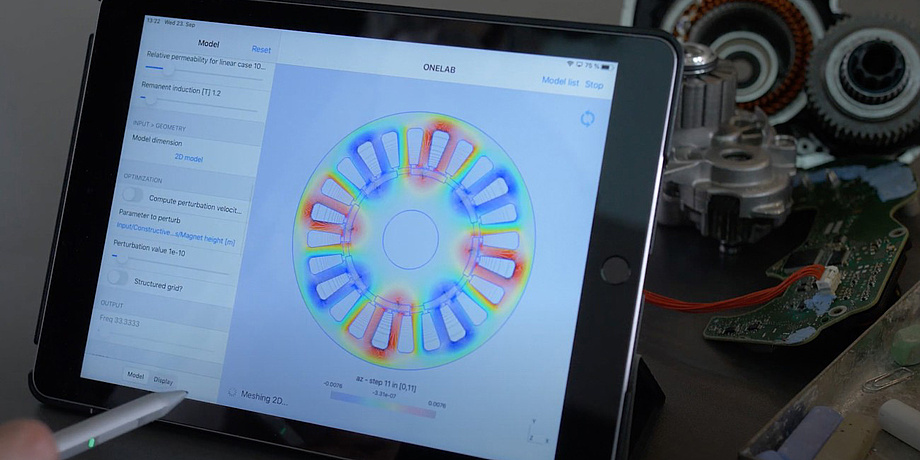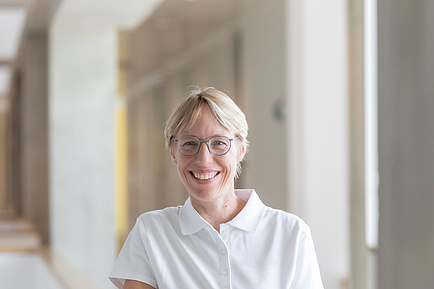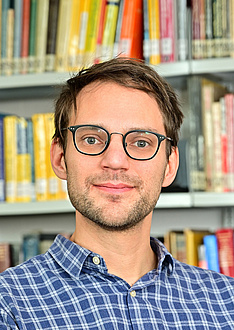The approved coordinated programme with the long title "Computational Electrical Machine Laboratory. Thermal modelling, transient analysis, geometry description and robust design" is the first joint German-Austrian research association in the funding line of “Collaborative Research Centres (DFG) / Special Research Centres (FWF)”. In the future, the Technical University of Darmstadt (TU Darmstadt) and Graz University of Technology (TU Graz) will deepen and advance their joint research work on the simulation of electrical machines here.
Harnessing the potential of electric machines for climate targets
For decades, electrical machines have played a central role in energy conversion, not only as generators for producing electrical energy, but also as motors, e.g. for electric vehicles. They account for more than half of total energy consumption. Modern power electronics have brought about numerous new operating and application possibilities for such motors, and together with new materials and manufacturing techniques, as well as advances in design optimization and control technology, they hold enormous potential for achieving climate targets.
Paradigm shift in design and development
Current design methods for electrical machines are based on a limited number of parameters and operating modes, typically at constant speed or constant torque. Optimization potential thus falls by the wayside. Sebastian Schöps (Head of Computational Electromagnetics at TU Darmstadt) and Annette Mütze (Electric Drives and Machines Institute at TU Graz), spokesperson for the German and Austrian sides respectively, now want to make use of this potential and achieve a paradigm shift with the research work towards new integrated simulation and design approaches. The new approaches take into account all important aspects of an electrical machine from the outset, such as shape and topology, time-dependent operating cycles, complex material behaviour, parameter uncertainties, robustness and noise development, as well as new cooling techniques for pushing thermal limits.
New solutions with the help of computer-aided simulations
Modelling, simulating and optimizing such a complex system poses extreme challenges for computational engineering (CE). Schöps and Mütze have been working together in this field for several years. CE is an interdisciplinary scientific discipline with links to applied mathematics, computer science and engineering sciences, and has established itself as the third pillar of gaining knowledge in engineering alongside theory and experiment.
The consortium
The consortium consists of scientists from the two strategic partner universities TU Darmstadt and TU Graz, as well as the Johannes Kepler University Linz. In addition to the proven experts in the participating subject areas, numerous young scientists are also represented. The TRR-SFB is closely integrated into the structures at both universities, such as the Centre for Computational Engineering (CCE) at TU Darmstadt and the Graz Center of Computational Engineering (GCCE).
“SPyCoDE” with TU Graz participation
The Austrian Science Fund FWF has also approved another Special Research Programme (SFB) with TU Graz participation. Under the leadership of Vienna University of Technology (TU Wien), researchers from Graz University of Technology (TU Graz), the Universities of Vienna and Klagenfurt as well as IST Austria are working together in the special research programme “SPyCoDE” on technological foundations for realizing the principle of “Security and Privacy by Design”. This principle is enshrined in the new European General Data Protection Regulation. It stipulates that data protection should be considered in the early design phase of IT infrastructures. An ideal that is not achieved with the technologies currently available, as the numbers of attacks and security breaches show. The SPyCoDE team – all international leading minds in logic, system security and cryptography – will now spend the next four years building a repository of knowledge for teaching, basic research and technology transfer, giving companies access to tools they can use to build complex IT systems that are secure by design and protect privacy. The funding volume for the SFB amounts to 4.4 million euros.
Further information on this can be found in the FWF press release on the special research areas.
This research topic is anchored in the Fields of Expertise “Sustainable Systems” and "Mobility & Production", two of the five strategic research foci at TU Graz.



